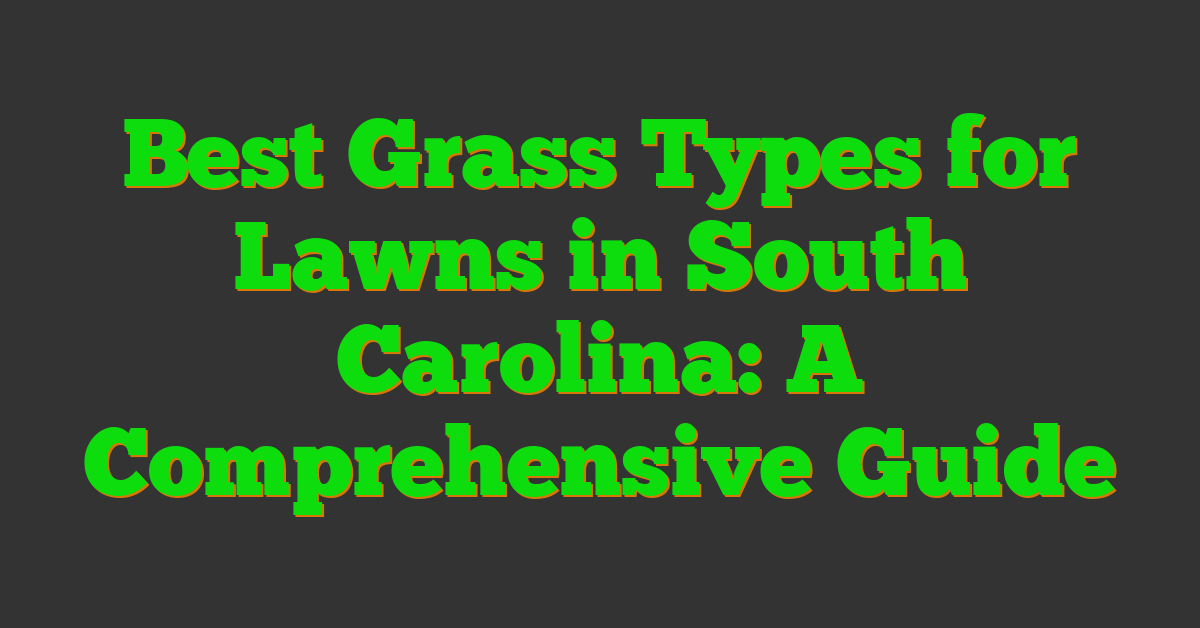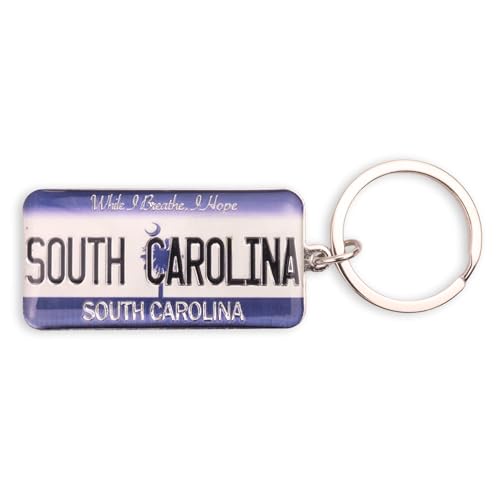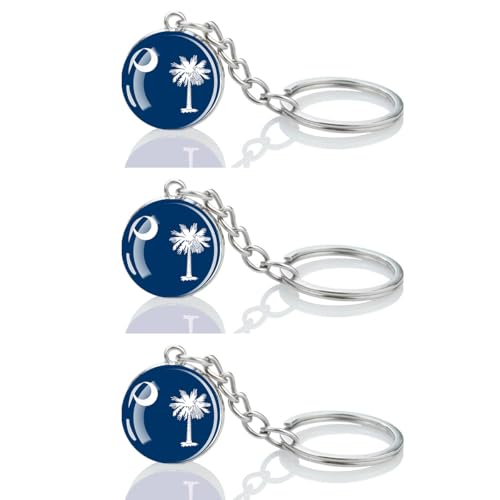If you live in South Carolina and are looking to maintain a healthy and vibrant lawn, selecting the right grass type is essential. South Carolina’s climate is characterized by hot summers and mild winters, with varying levels of rainfall across the state. As a result, choosing the right grass type for your lawn can be a bit of a challenge.

One of the first things to consider when selecting a grass type for your lawn is whether it is a warm-season or cool-season grass. Warm-season grasses, such as Bermuda grass and Zoysia grass, thrive in the heat and are well-suited to South Carolina’s hot summers. Cool-season grasses, such as Kentucky Bluegrass and Tall Fescue, are better suited to the cooler months and require more watering during the hot summer months.
Once you have selected the right grass type for your lawn, it is important to understand the grass’s characteristics and maintenance needs. Different grass types have different growth rates, mowing heights, and fertilization requirements. Understanding these needs and providing the necessary care can help ensure your lawn stays healthy and vibrant throughout the year.
Key Takeaways
- Selecting the right grass type for your lawn is essential for maintaining a healthy and vibrant lawn in South Carolina.
- Warm-season grasses, such as Bermuda grass and Zoysia grass, are well-suited to South Carolina’s hot summers, while cool-season grasses, such as Kentucky Bluegrass and Tall Fescue, are better suited to the cooler months.
- Understanding your grass’s characteristics and maintenance needs is essential for keeping your lawn healthy and vibrant throughout the year.
Understanding the Climate of South Carolina

https://www.youtube.com/watch?v=IZ9vNnajmvw&embed=true
When it comes to choosing the best grass type for your lawn in South Carolina, it’s important to consider the climate of the region. South Carolina has a humid subtropical climate, which means that summers are hot and humid, while winters are mild.
During the summer months, temperatures can reach up to 90°F, with high levels of humidity. This can make it difficult for some grass types to thrive, especially those that are not heat-tolerant. However, there are warm-season grasses that are well-suited to South Carolina’s climate, such as Bermuda grass, Centipede grass, and St. Augustine grass.
In the fall, temperatures begin to cool down, and rainfall becomes more frequent. This is an ideal time to overseed your lawn with cool-season grasses, such as Tall Fescue or Ryegrass. These grass types can help to keep your lawn looking green and healthy throughout the winter months.
It’s important to note that South Carolina’s climate can vary depending on the region. For example, the coastal areas of the state tend to have more moderate temperatures, while the inland areas experience more extreme temperatures. Be sure to choose a grass type that is well-suited to your specific region and microclimate.
Overall, understanding the climate of South Carolina is key to choosing the best grass type for your lawn. By selecting a grass type that is well-suited to the region’s hot and humid summers, mild winters, and occasional droughts, you can ensure that your lawn stays healthy and green throughout the year.
Differentiating Between Warm-Season and Cool-Season Grasses
https://www.youtube.com/watch?v=SFNpgRWqtVc&embed=true
When it comes to choosing the right grass for your lawn in South Carolina, understanding the difference between warm-season and cool-season grasses is important. Each type of grass has its own set of characteristics that make it suitable for different climates and growing conditions. Here’s what you need to know:
Warm-Season Grasses
Warm-season grasses are well-suited for the hot and humid summers of South Carolina. They tend to thrive in temperatures between 80-95°F and can tolerate drought conditions. Some common types of warm-season grasses include Bermuda grass, Zoysia grass, and Centipede grass.
One of the key advantages of warm-season grasses is their ability to grow quickly during the summer months. They also have a high tolerance for foot traffic and can recover quickly from damage. However, they can go dormant and turn brown during the winter months, which can be unsightly.
Cool-Season Grasses
Cool-season grasses, on the other hand, are better suited for cooler climates and can tolerate temperatures between 60-75°F. They are often used in the northern parts of the United States, but some varieties can also be grown in South Carolina. Some common types of cool-season grasses include Kentucky bluegrass, fescue, and ryegrass.
Cool-season grasses have a slower growth rate and require more water than warm-season grasses. However, they stay green throughout the winter months and can provide a lush, green lawn year-round. They are also more resistant to disease and pests than warm-season grasses.
In South Carolina, cool-season grasses are often overseeded onto warm-season grasses during the fall to maintain a green lawn throughout the winter months.
Overall, the choice between warm-season and cool-season grasses depends on your specific climate and growing conditions. Consider factors such as temperature, rainfall, and soil type when choosing the right grass for your lawn.
Popular Grass Types for South Carolina Lawns
https://www.youtube.com/watch?v=ltM9z5vsAHE&embed=true
When it comes to choosing the best grass for your South Carolina lawn, there are several options to consider. Each grass type has its unique characteristics, including drought tolerance, shade tolerance, and maintenance requirements. Here are some of the most popular grass types for South Carolina lawns:
Bermuda Grass
Bermuda grass is a warm-season grass that can withstand hot temperatures and drought conditions. It has a fine texture and is ideal for high-traffic areas. Bermuda grass requires full sun and regular watering to maintain its lush green color. It is also known for its excellent disease resistance and low maintenance requirements.
Centipede Grass
Centipede grass is a low-maintenance, warm-season grass that is perfect for South Carolina lawns. It has a medium texture and is known for its excellent shade tolerance. Centipede grass requires less watering and fertilization than other grass types, making it a popular choice for homeowners looking for a low-maintenance lawn.
Zoysia Grass
Zoysia grass is a warm-season grass that is known for its excellent drought tolerance and low maintenance requirements. It has a fine texture and is perfect for homeowners looking for a lawn that is both attractive and easy to maintain. Zoysia grass requires full sun and moderate watering to maintain its lush green color.
Tall Fescue Grass
Tall fescue grass is a cool-season grass that is perfect for South Carolina lawns. It has a coarse texture and is known for its excellent shade tolerance. Tall fescue grass requires regular watering and fertilization to maintain its lush green color. It is also resistant to disease and pests, making it a popular choice for homeowners looking for a low-maintenance lawn.
« Best Grass Types for Lawns in Rhode Island: A Guide to Choosing the Right Grass for Your Yard Best Grass Types for Lawns in South Dakota: A Friendly Guide »
St. Augustine Grass
St. Augustine grass is a warm-season grass that is perfect for South Carolina lawns. It has a medium texture and is known for its excellent shade tolerance. St. Augustine grass requires regular watering and fertilization to maintain its lush green color. It is also resistant to pests and diseases, making it a popular choice for homeowners looking for a low-maintenance lawn.
Overall, the best grass for your South Carolina lawn will depend on several factors, including your location, climate, and maintenance requirements. By considering these factors and choosing a grass type that suits your needs, you can create a beautiful and healthy lawn that you can enjoy for years to come.
Grass Characteristics and Maintenance Needs
https://www.youtube.com/watch?v=khcjQvABIPI&embed=true
When choosing the best grass for your South Carolina lawn, it’s important to consider the characteristics and maintenance needs of different grass types. Here are some key factors to keep in mind:
Shade Tolerance
If your lawn has a lot of shade, you’ll want to choose a grass type that can handle it. St. Augustine grass is a good option for shady areas, as it can tolerate moderate shade. Bermuda grass and Zoysia grass are also fairly shade-tolerant, but they prefer full sun.
Drought Tolerance
South Carolina can experience hot, dry summers, so it’s important to choose a grass type that can handle drought conditions. Bermuda grass is a good choice for drought-prone areas, as it has a deep root system that helps it survive dry spells. Zoysia grass and Centipede grass are also fairly drought-tolerant.
Mowing Height
Different grass types have different ideal mowing heights. For example, Bermuda grass should be mowed at a height of 1/2 to 1 inch, while St. Augustine grass should be mowed at a height of 2 to 4 inches. Be sure to research the ideal mowing height for your chosen grass type to keep your lawn healthy and looking its best.
Texture
Grass texture can vary widely between different types. For example, Bermuda grass has a fine texture, while Zoysia grass has a medium texture. Consider what texture will work best for your lawn’s aesthetic and functional needs.
Foot Traffic Tolerance
If your lawn will be used for high-traffic activities like sports or games, you’ll want to choose a grass type that can handle it. Bermuda grass and Zoysia grass are both good options for high-traffic areas, as they can handle heavy foot traffic without becoming damaged.
Overall, different grass types have different maintenance needs. Some require more water, fertilizer, and mowing than others. Consider your lawn’s maintenance needs and your own ability to keep up with them when choosing a grass type. If you’re looking for a low-maintenance option, Centipede grass is a good choice, as it requires less water and fertilizer than many other grass types.
Understanding Soil Type and Fertilization
https://www.youtube.com/watch?v=Gl2apynaMWY&embed=true
When it comes to growing a healthy lawn in South Carolina, understanding your soil type is crucial. Different types of grass have different soil requirements, so it’s important to know what kind of soil you have before choosing a grass type.
Most turfgrasses can grow in a wide range of soil conditions, including pH values of 5.0 to 8.5. Soil types in which most turfgrasses are grown in the southern United States, include sand, clay, marl or muck-type soils. For example, centipedegrass and carpetgrass grow best in acid soils.
Once you’ve determined your soil type, you can begin fertilizing your lawn. Fertilization is an important aspect of lawn care that ensures your grass gets the nutrients it needs to thrive.
To determine what fertilizer is needed according to the turfgrass species, ideally a soil test should be performed. Then, use a slow-release fertilizer according to soil test results. A slow release fertilizer is long-lasting and less likely to burn the grass blades.
It’s important to fertilize your lawn when the grass is dry and water it in thoroughly after application. This will help prevent any fertilizer burns and ensure that the nutrients are absorbed by the grass roots.
Overall, understanding your soil type and fertilization needs is key to growing a healthy lawn in South Carolina. By taking the time to properly care for your lawn, you can enjoy a lush, green yard all year round.
Dealing with Grass Diseases and Pests
https://www.youtube.com/watch?v=D3STM0ysYME&embed=true
Maintaining a healthy lawn in South Carolina requires dealing with grass diseases and pests that can damage your grass. Here are some tips to help you keep your lawn healthy and free from diseases, weeds, insects, and nematodes:
Diseases
There are several common grass diseases that can affect lawns in South Carolina. These include brown patch, dollar spot, and gray leaf spot. To prevent these diseases, make sure you mow your lawn regularly, water it deeply and infrequently, and avoid over-fertilizing.
If you notice any of these diseases in your lawn, you can treat them with fungicides. Be sure to read the label carefully and follow the instructions for use.
Weeds
Weeds can be a major problem in South Carolina lawns. Common weeds include crabgrass, dandelions, and clover. To prevent weeds, make sure you mow your lawn regularly and keep it well-watered and fertilized.
If you do have weeds in your lawn, you can treat them with herbicides. Be sure to choose an herbicide that is safe for your grass type and follow the instructions for use.
Insects
Insects can also damage your lawn in South Carolina. Common lawn insects include chinch bugs, grubs, and armyworms. To prevent insect damage, make sure you mow your lawn regularly, water it deeply and infrequently, and avoid over-fertilizing.
If you do have insect damage in your lawn, you can treat it with insecticides. Be sure to choose an insecticide that is safe for your grass type and follow the instructions for use.
Nematodes
Nematodes are microscopic worms that can damage your lawn in South Carolina. They feed on the roots of grass and can cause yellowing and thinning of the turf. To prevent nematode damage, make sure you mow your lawn regularly, water it deeply and infrequently, and avoid over-fertilizing.
If you do have nematode damage in your lawn, you can treat it with nematode-resistant grass varieties or with nematode control products. Be sure to follow the instructions for use.
Overseeding and Reseeding Lawns
https://www.youtube.com/watch?v=lPXmIXL86Jk&embed=true
If you want to keep your lawn looking green and lush year-round, overseeding and reseeding are important maintenance tasks. Overseeding involves spreading grass seed over an existing lawn to fill in thin or bare spots, while reseeding involves starting from scratch by planting new grass seed over a bare lawn. Here are some tips to help you overseed or reseed your lawn successfully:
Choose the right time: The best time to overseed or reseed your lawn in South Carolina is in the fall, between mid-September and mid-October. This is when the soil is still warm enough to encourage seed germination, but the cooler temperatures and increased rainfall help the new grass establish roots before winter.
Prepare the soil: Before overseeding or reseeding, it’s important to prepare the soil by removing any debris, thatch, or dead grass. You can use a rake or a dethatching machine to do this. Then, loosen the soil by aerating it with a garden fork or aerator machine. This will help the new grass seed make good contact with the soil and absorb nutrients.
Choose the right grass seed: When choosing grass seed for overseeding or reseeding, make sure to select a variety that is well-suited to the growing conditions in your area. For South Carolina, some good options include Tall Fescue, Kentucky Bluegrass, and St. Augustinegrass. Be sure to read the label carefully to ensure that the seed is appropriate for your soil type, sun exposure, and other factors.
Spread the seed evenly: To ensure even coverage, use a seed spreader to apply the grass seed. Follow the instructions on the seed bag to determine the correct amount of seed to use per square foot. It’s important to avoid over-seeding, as this can lead to competition for resources and poor growth.
Water regularly: After overseeding or reseeding, it’s important to keep the soil moist by watering it regularly. Aim to water lightly but frequently, as this will help the new grass seedlings establish roots without drowning them. You may need to water several times a day for the first few weeks, depending on the weather conditions.
By following these tips, you can help ensure that your lawn stays healthy and green year-round. Overseeding and reseeding can be a bit of work, but the results are well worth it!
Professional Lawn Care Services
https://www.youtube.com/watch?v=IxYR_HSb8aU&embed=true
Maintaining a perfect lawn can be a daunting task, especially if you don’t have the time or expertise to do it yourself. That’s where professional lawn care services come in. They can help you achieve the perfect lawn you’ve always wanted without the hassle.
A lawn care professional can provide a variety of services, from mowing and edging to fertilization and weed control. They can also help you choose the best grass type for your lawn and provide tips on how to maintain it properly.
When choosing a lawn care professional, it’s important to do your research. Look for companies with a good reputation and positive reviews from previous customers. You can also ask for referrals from friends and family who have used lawn care services in the past.
Once you’ve found a lawn care professional you’re comfortable with, make sure to communicate your expectations clearly. Let them know what you want to achieve with your lawn and ask for their advice on how to get there. Regular communication with your lawn care professional can help ensure that your lawn stays healthy and beautiful all year round.
In conclusion, hiring a lawn care professional can be a great investment in the health and beauty of your lawn. With their expertise and experience, they can help you achieve the perfect lawn without the stress and hassle of doing it yourself.
Affiliate Advertising Program

If you’re looking to purchase grass seed or other lawn care products, you may come across affiliate advertising programs. These programs allow websites to earn a commission by promoting products through unique links. As a consumer, this means that if you click on one of these links and make a purchase, the website owner may receive a commission.
One popular affiliate advertising program is the Amazon Services LLC Associates Program. This program allows website owners to earn a commission on qualifying purchases made through Amazon links on their site. If you’re interested in purchasing lawn care products through Amazon, consider using a link from a trusted website that participates in the Amazon Associates Program.
It’s important to note that while affiliate advertising programs can be a helpful way for website owners to earn money, it’s also important to be mindful of biased or misleading product recommendations. Always do your own research and read reviews before making a purchase, and consider using multiple sources to ensure you’re getting accurate information.
In summary, affiliate advertising programs like the Amazon Services LLC Associates Program can be a helpful way for websites to earn money while promoting products. However, as a consumer, it’s important to do your own research and be mindful of biased recommendations.
Frequently Asked Questions

What are the most common grass types in South Carolina?
The most common grass types in South Carolina are Bermuda grass, Centipede grass, St. Augustine grass, and Zoysia grass. Each of these grasses has its own unique characteristics that make them ideal for certain environments and conditions.
What is the easiest grass to maintain in South Carolina?
Centipede grass is the easiest grass to maintain in South Carolina. It requires less fertilizer and water than other grass types, and it is resistant to many common lawn diseases. Centipede grass also has a low-maintenance mowing height of around 1.5 to 2 inches.
What is the best year-round grass for South Carolina?
Zoysia grass is the best year-round grass for South Carolina. It is a warm-season grass that stays green throughout the year, even in the winter months. Zoysia grass is also drought-tolerant and resistant to many common lawn pests and diseases.
What is the best grass seed for South Carolina?
The best grass seed for South Carolina depends on the specific needs of your lawn. For warm-season grasses, Bermuda grass and Zoysia grass are both good options. For cool-season grasses, Tall Fescue grass is a popular choice.
What is the best sod for South Carolina?
The best sod for South Carolina is Zoysia grass. It is a warm-season grass that is well-suited to the hot and humid climate of the state. Zoysia grass is also drought-tolerant, low-maintenance, and resistant to many common lawn pests and diseases.
What is the best Fescue grass seed for South Carolina?
The best Fescue grass seed for South Carolina is Tall Fescue grass. It is a cool-season grass that is well-suited to the mild winters and hot summers of the state. Tall Fescue grass is also drought-tolerant and resistant to many common lawn pests and diseases.
















